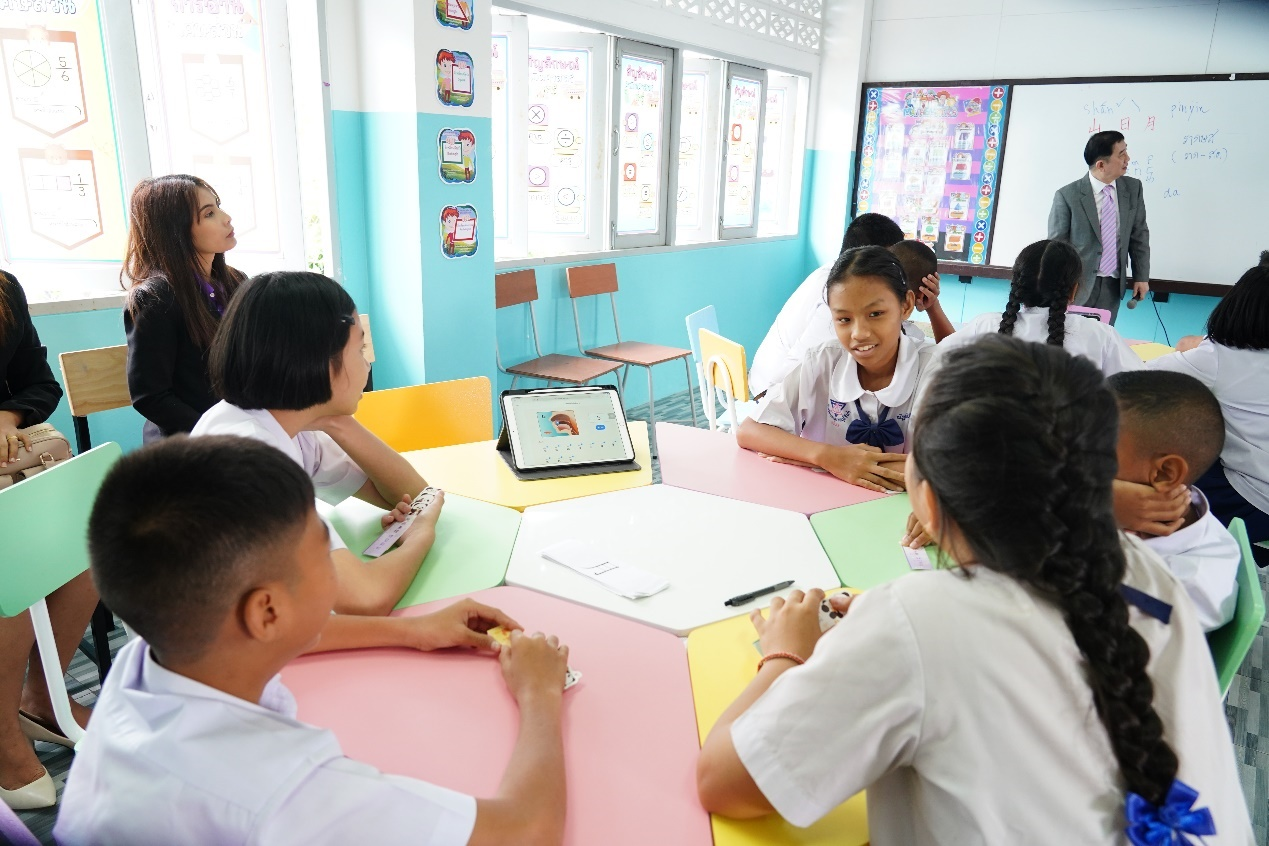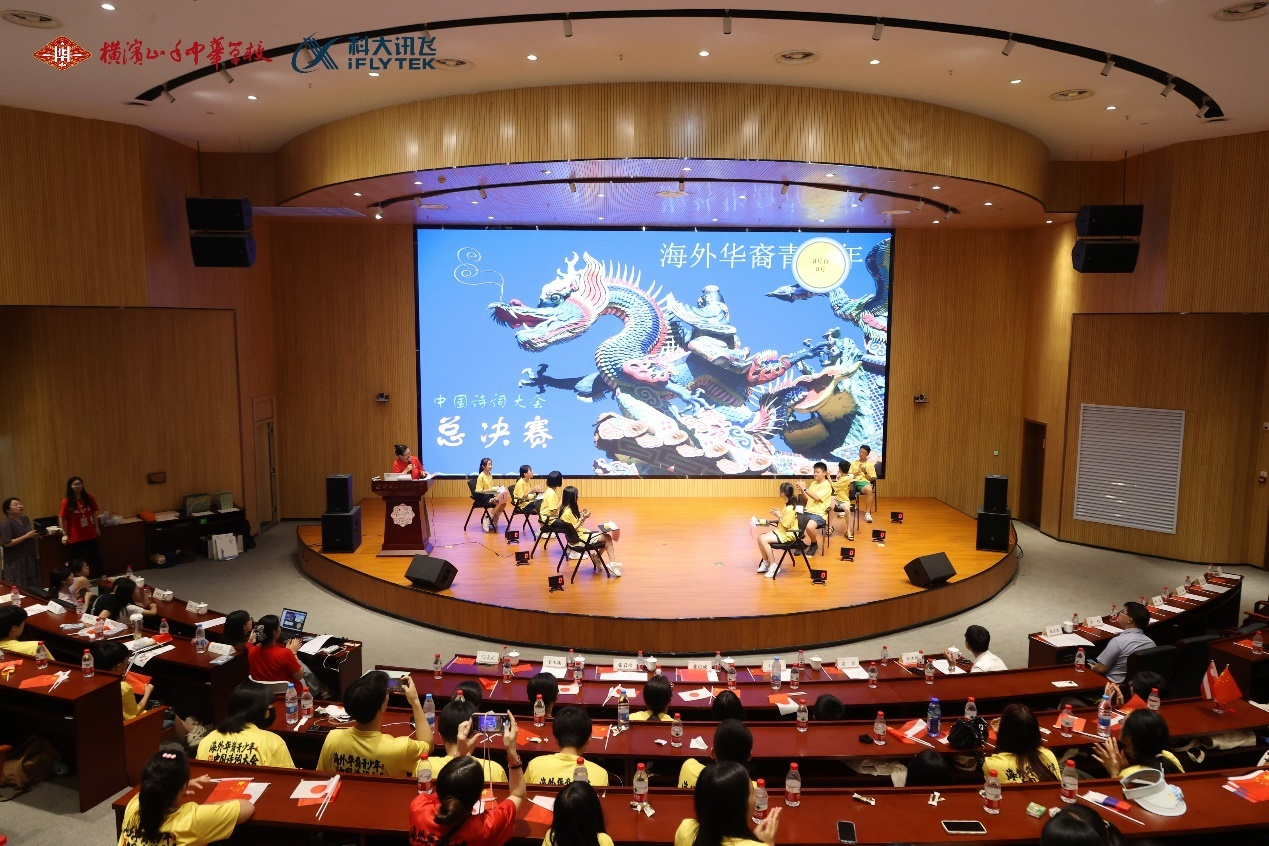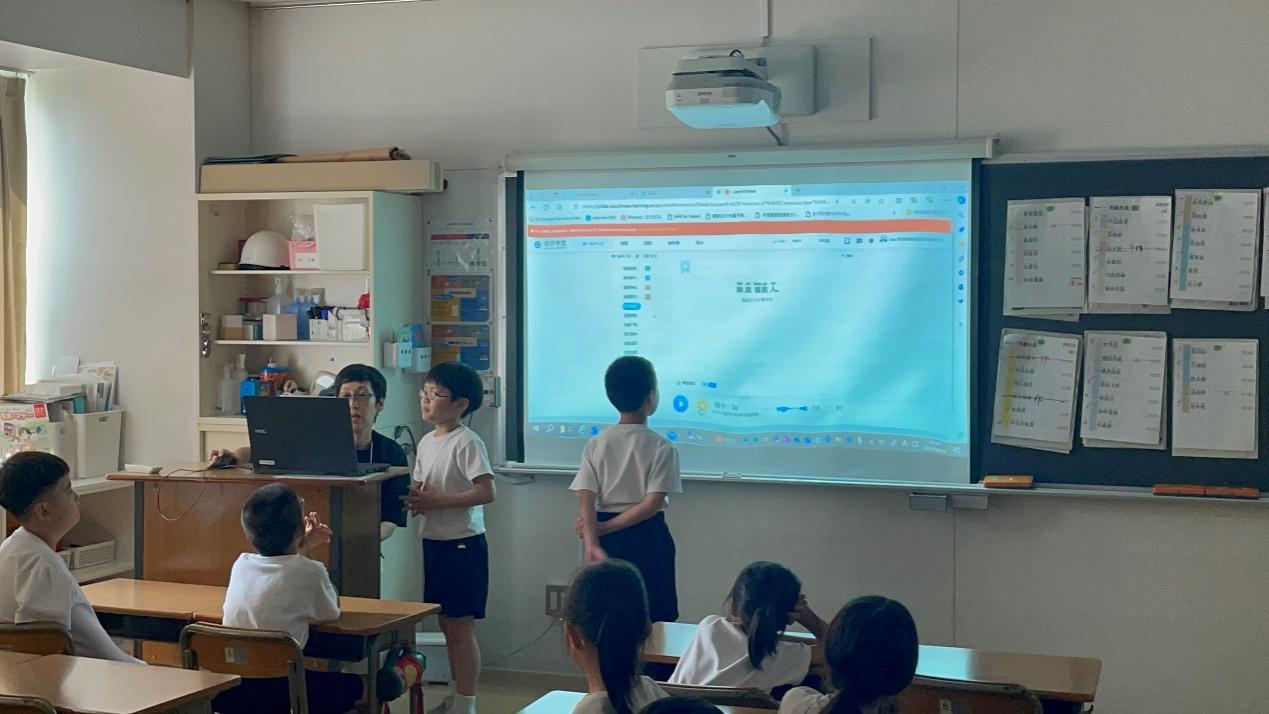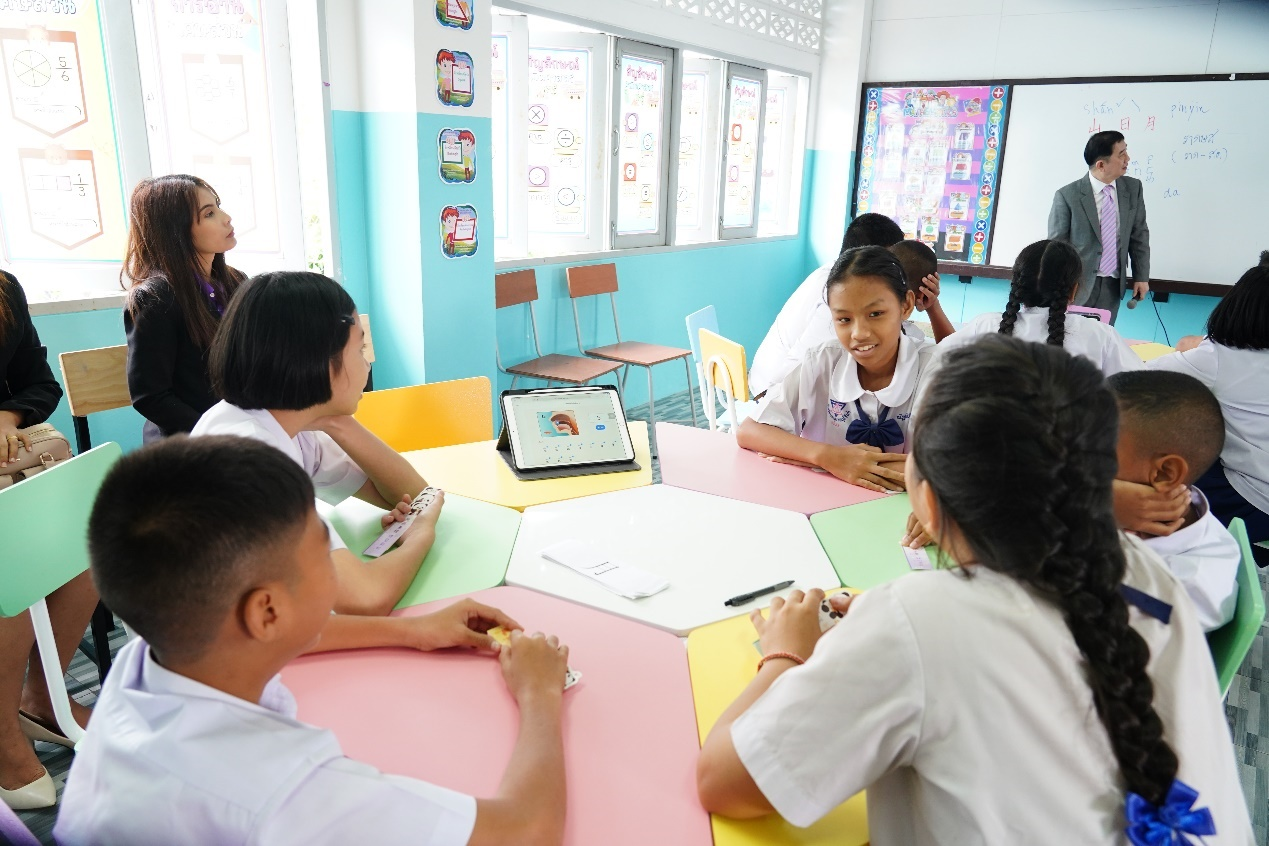

A school in Thailand is using an AI Chinese teaching platform for classes. (Photo provided by iFLYTEK)


The Finals of the "iFLYTEK Cup" 1st Global Overseas Chinese Youth Chinese Poetry Competition (Photo provided by iFLYTEK)
In August 2024, a cultural extravaganza transcending time and space - the Finals of the "iFLYTEK Cup" First Global Overseas Chinese Youth Chinese Poetry Competition - was held in Xi'an, China. Forty contestants from ten countries and regions around the world were divided into four groups by lottery and seated on two sides, engaging in fierce competition.
Behind the event was an innovative "AI+Education" model jointly created by the Chinese enterprise iFLYTEK and the Yokohama Yamate Chinese School in Japan, demonstrating the deep integration of AI technology and cultural education.
Overseas Chinese Youth's "Poetic Dream": AI Bridges Cultural Heritage to Fingertips
In May 2024, the first Global Overseas Chinese Youth Chinese Poetry Conference was held. A total of 983 contestants from 20 countries and regions around the world participated in the preliminary round. The competition was based on the voice recognition big data ranking of the poetry recitation on the iFLYTEK AI Reading Platform, assessing the contestants' recitation scores and the number of submissions. The top 280 contestants were selected. After a comprehensive evaluation by the organizing committee of the competition, 130 teachers and students from 15 Chinese schools in 10 countries were finally selected to enter the final round in Xi'an Summer Camp.
"Previously, I always worried about my pronunciation when reciting. Now, through the evaluation report of the AI reading platform, I can clearly know my weak points," said Fei Jialin, a contestant, after the competition. According to statistics, a total of 16,906 works were submitted by the contestants in the preliminary round. With the support of voice recognition and evaluation technology, the quality of the works gradually improved. The proportion of works with a comprehensive score of over 90 points in the preliminary round rose from 63.53% in the first week to 86.21% in the second week.
Zhang Yansong, the principal of Yokohama Yamate Chinese School, said, "We hope to build a cultural bridge through the poetry competition, and AI technology makes this bridge more solid." After introducing the iFLYTEK International Chinese Smart Education Cloud Platform in 2021, the school introduced the AI reading platform again in 2024.
AI Empowers Education: Charting "Personalized" Growth Pathway
In the teachers' office of Yokohama Yamate Chinese School, Yuriko Morita was checking the speech evaluation reports of her class. "In the past, it took two days to carefully grade the compositions of one class. Now, the AI system can complete the analysis in half an hour and even provide targeted suggestions," she said. The precise feedback from the system has reduced her workload, allowing her to focus more on individual differences among students.


Teachers and students of the Yokohama Yamate Chinese School are having classes using the iFLYTEK International Chinese Smart Education Cloud Platform. (Photo provided by iFLYTEK)
"In the past, we relied entirely on paper-based assignments. Now, through the cloud platform, we can assign 'one-click issue' homework. Students receive immediate feedback after completing their exercises online, and the knowledge mastery rate has increased by 11.2%," Yi Xinhui, a teacher at the school. According to statistics, by July 1, 2025, the school's teachers have issued online homework 2,789 times, and students' homework scores have steadily improved.
The cloud platform is like a 24/7 tutor, always accompanying students. "Learning to write Chinese characters used to be very boring. Now, the platform has PK duels and AI knowledge point exercises. I study for several hours every day voluntarily," said student Wu Renmei excitedly. "Functions like dynamic tongue position pronunciation diagrams, special exercises for similar-looking characters, and Japanese language simulation test analysis make learning very interesting." As of July 1, 2025, students at the school have independently completed 65,850 exercises, with an average score of 74 points.
So far, Yokohama Yamate Chinese School has achieved intelligentization of Chinese teaching across all grades. Data shows that the usage rate of the "Primary School Chinese" textbook in the primary school department is 68%, with an average score of 81.1 points for the accompanying exercises. In the junior high school department, the average score for "Junior High School Chinese" exercises is 83.55 points. Students' pinyin proficiency has significantly improved: the accuracy rate of initial consonants has increased from 64.31% to 72.41%, final vowels from 69.31% to 80%, and tones from 84.83% to 90%.
"The application of artificial intelligence in Chinese education can fully integrate online and offline learning, break through the limitations of time and space, and create a learning environment where 'everyone can learn, everywhere, and anytime' for Chinese," Zhang Yansong said.
From Japan to Global Classrooms: "AI+Education" Blossoming across World
In fact, it is not only applied and implemented in Yokohama Yamate Chinese School. The "AI+Education" model of iFLYTEK has been implemented in many places around the world. The Global Chinese Learning Platform was launched in 2019 and has covered 194 countries and regions and served 18.35 million Chinese language learners since then.
In Singapore, the iMTL (i Mother Tongue Language) project, based on iFLYTEK's Global Chinese Learning Platform, has covered 600,000 teachers and students across the country, becoming the first Chinese oral assessment system to cooperate with the Ministry of Education of a foreign country. In Thailand, more than ten schools have applied the AI Chinese teaching platform, which integrates functions such as speech recognition, intelligent evaluation, and personalized learning path recommendation, effectively enhancing classroom interaction and learning efficiency.
The wave of global educational reform is surging forward, and AI is injecting sustainable impetus into the fair and inclusive development of global education. At the same time, it also interprets the touching value of AI - it is not only the progress of technology and tools, but also the common pursuit of mankind for a better life. (By Huang Xiuhuan)




 A single purchase
A single purchase









